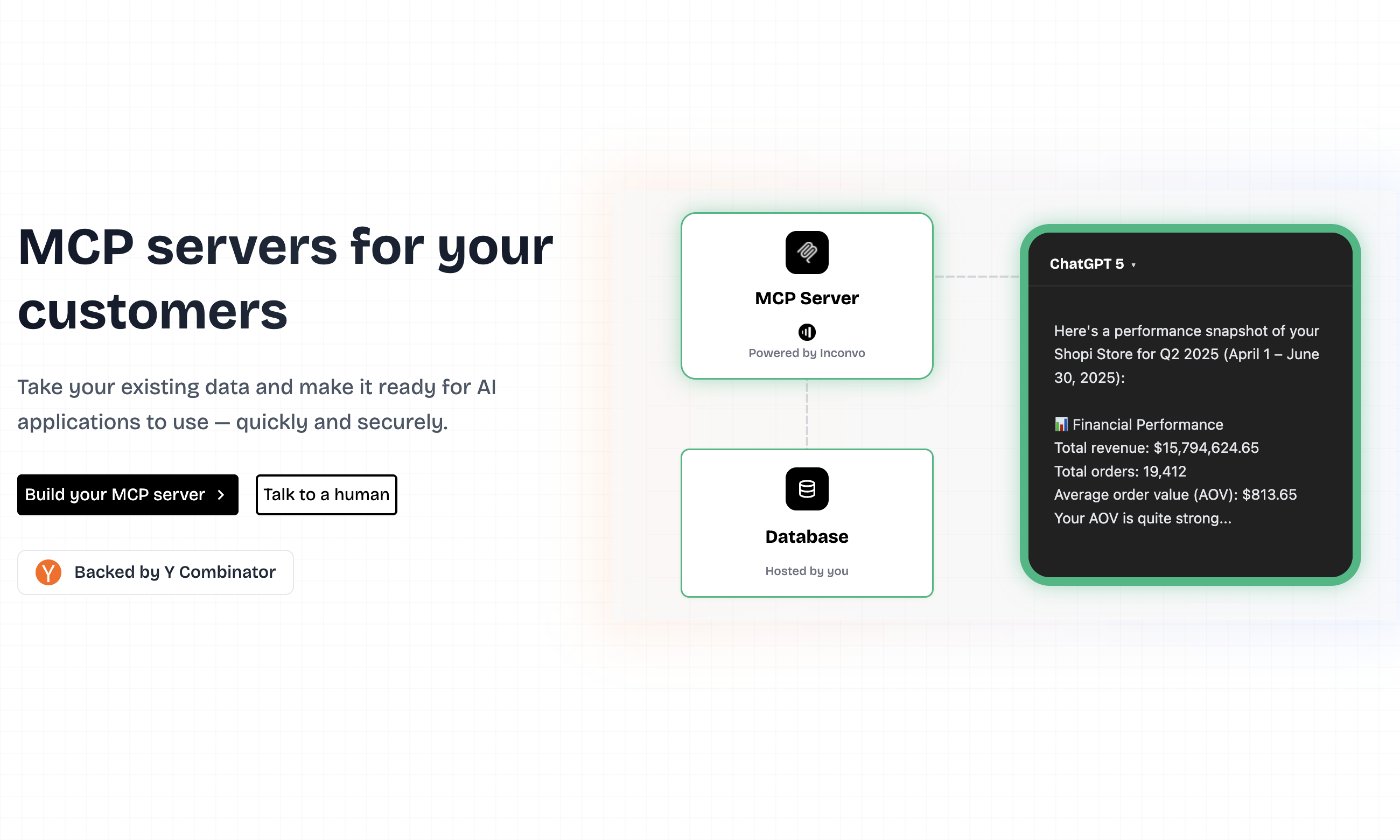Over the past month, we’ve noticed a pattern among our power users. The most active, forward-thinking vertical SaaS teams were all taking the same approach: they were using Inconvo as the foundation for their own Model Context Protocol (MCP) servers. That insight turned into a clear roadmap for us.

Vertical SaaS companies have spent years curating, storing, and resurfacing industry-specific data. They own the workflows, data models, and access controls their customers rely on every day, whether it’s in logistics, finance, healthcare, or retail. Historically, those insights showed up in dashboards and scheduled reports.
Now the interface is shifting again. Customers are spending more of their time in AI applications like ChatGPT and Claude. We’ve gone from spreadsheets to browsers, and now from browsers to AI workspaces. Teams that adapt fastest to new interfaces tend to become category leaders.
For vertical SaaS teams, AI workspaces are a new surface area to deliver value. Customers aren’t idly experimenting with these tools: they’re expecting to run their day-to-day workflows through them. The most valuable thing a SaaS company can bring into that workspace is the customer’s own data, available instantly.
That’s where the Model Context Protocol comes in. An MCP server bridges your SaaS backend with AI applications, so an end user can ask “What were my top-performing regions last quarter?” or “Generate a projection based on my last five shipments” and get an accurate, contextual answer backed by production data.
Once that bridge exists, use cases expand quickly:
You can already see this trajectory with companies like Square, Stripe, and HubSpot, which are building AI application connectors for their customers.
Even with an MCP server in place, the experience starts with your API. To make AI-driven queries truly useful, the API has to be composable: it should allow any combination of filters, joins, aggregations, and transformations in a single request. That’s how an AI agent can respond to flexible, context-rich questions instead of simply pulling records.
Most vertical SaaS APIs weren’t built for that. They were designed for record management, not exploratory analysis. Before AI-assisted code generation, building a composable query layer was expensive and rarely worth the investment.
Inconvo was built to solve exactly that problem. We provide a composable data API that accepts natural language, maps it onto your existing schema, and generates precise queries on the fly. It lets AI agents ask richer questions without you rewriting your backend.
Initially, offering Inconvo as an API was enough for many teams. But we kept hearing about the last-mile work that slowed launches down. Teams still had to:
Large engineering teams could take that on. Many others wanted to focus on their product experience instead of infrastructure.
We started filling those gaps internally to support early adopters. Pretty quickly, it became obvious we should offer the entire path from idea to production.
Starting today, every Inconvo customer can launch a fully managed MCP server in a few clicks.
The result is a path from concept to live AI data connectivity in days, not months.
This is the natural next step in our mission to make customers’ data useful inside AI experiences. It’s not enough to generate the right query; we also need to deliver the answer where end users are working. Hosted MCP servers complete that loop by packaging query intelligence with a reliable delivery mechanism.
Vertical SaaS has always been about meeting users where they operate. That place is moving from dashboards into AI-native workflows. We want our customers to move there confidently and without distraction.
We’re excited to see what our customers build with this. If you’re a vertical SaaS team that wants to connect structured data to AI applications without owning the infrastructure, let’s talk. You can now launch a fully managed MCP server and ship new AI-powered experiences in just a few clicks.